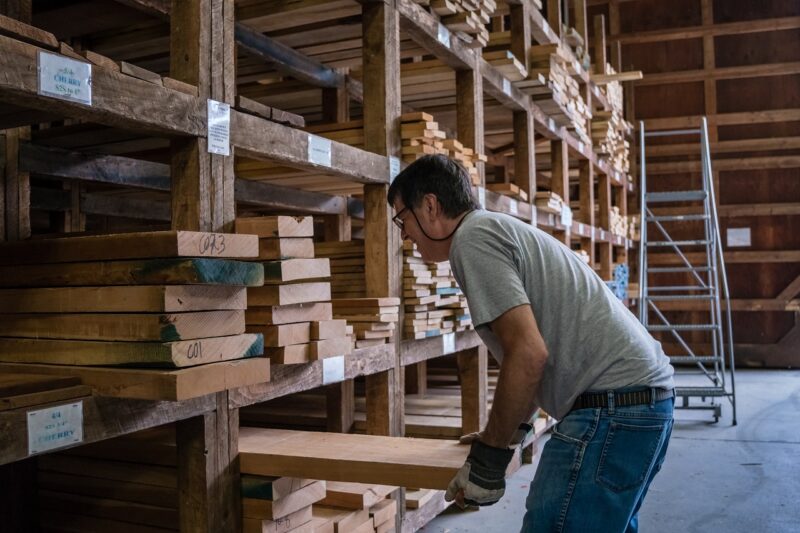Published: 04/12/24 By: Mike Bekin
When looking into timber choices, your first major decision will be whether to choose hardwood or softwood timber. Both categories come with very different properties, and it is pretty important that you know more about each variety before making a decision. So which is right for your project? Find out in this guide.
Common Applications of Hardwoods vs. Softwoods
Hardwoods are generally considered the tougher of the two options. Though this is not always the case, it does make it easier to make the right choice quickly if you are in a rush. To give you an overview of the suitability of both hardwoods and softwoods for different applications, we have created a quick table:
| Hardwoods | Softwoods |
|
As mentioned, hardwood and softwood species do not always stick to the confines of their category, but this is a good place to start.
Why Choose Hardwoods?
Hardwoods are well-known for their strength, durability and beautiful appearance, making them perfect for applications which will see a bit more wear and tear. These timber species come from broad-leafed, deciduous trees which grow slowly, resulting in dense, tight-grained timber (hence the superior strength).
Some examples of hardwoods include:
Typically, hardwoods are more expensive than softwoods. We would recommend them if you are looking for longevity and durability, such as for those applications mentioned in the chart above, but if you are on a tight budget then a softwood may be a better choice.
Why Choose Softwoods?
Softwoods tend to be more lightweight than hardwoods and easier to work with, making them a great choice for DIY construction projects and timber frames. Derived from coniferous trees, softwoods are more readily available because of their faster growth rate, making them an environmentally friendly and budget-conscious option.
Some examples of softwoods include:
Some softwoods can be tougher than others. Cedar and Douglas Fir, for instance, are two super strong and durable softwoods which can be just as easily suited to some hardwood applications, but they do come with a higher price tag than a less durable softwood, for instance, Pine.
It is also good to note that most softwoods can be treated to become more durable. Thermo modification, for example, is a non-toxic, permanent treatment which makes a softwood timber species more stable and durable!
Which Is Right For Your Project?
In our opinion, it is not as simple as choosing a hardwood or a softwood when looking at timber choices. There are some fantastic softwoods well-suited to exterior applications, for example, and some hardwoods that, while durable, are incredibly difficult to work with.
It is great to have an idea of what softwoods and hardwoods are (and their relative budgets), but we would suggest looking more closely at the various individual timber species to make the right choice for your project.
Find Your Timber Match With Our Help
Don’t have time to trawl through the descriptions of hundreds of timber species? No problem, we have got you covered. At EcoChoice, we have decades of experience working with timber and can easily match you with a species based on your requirements. Drop us a message today and let’s find your perfect timber.
